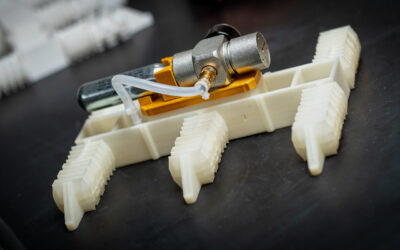Porous silicon carbide is a promising material for biomedical applications (implants, drug delivery, tissue scaffolding, etc.,), because of its bio-inertness and excellent mechanical properties. Its application to thermal management devices are equally interesting, due to its excellent thermal properties, which makes the design of porous SiC-based ceramics a fruitful field of research.
Many biomorphic materials have been prepared, but the need for new pore space structures has focused recent studies on their preparation by chemical synthesis routes. This focus is now switching to biosourcing of the precursors, which offers low raw reactant costs, environmental friendliness and good process scalability.
Researchers from three labs in Bordeaux, France have prepared and characterized for the first time SiC/C composite foams from concentrated emulsions by carbothermal reduction of biosourced sodium silicate and lignin at 1400 °C. They found out that when the starting lignin content was increased, the final C/Si ratio, the specific surface area and the heat conductivity increased as well, up to unprecedentedly high values (18 W.m–1.K–1), which was attributed to radiative heat transfer and to the presence of partially graphitized carbon.
















